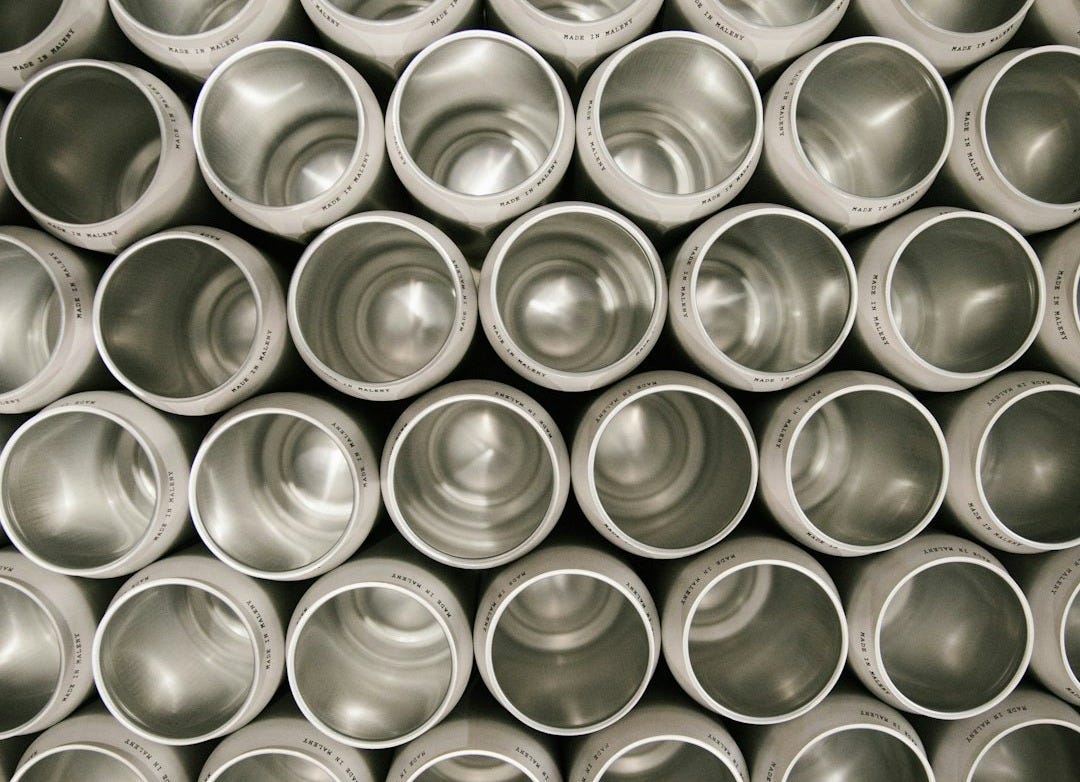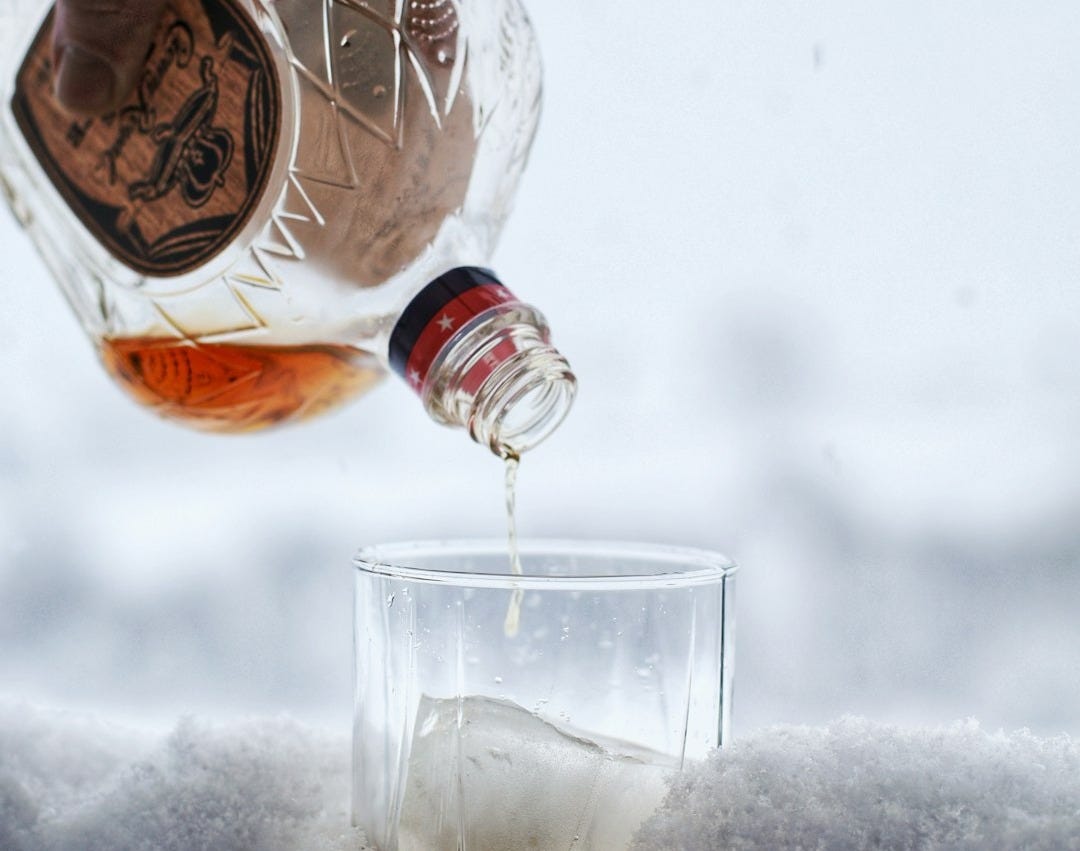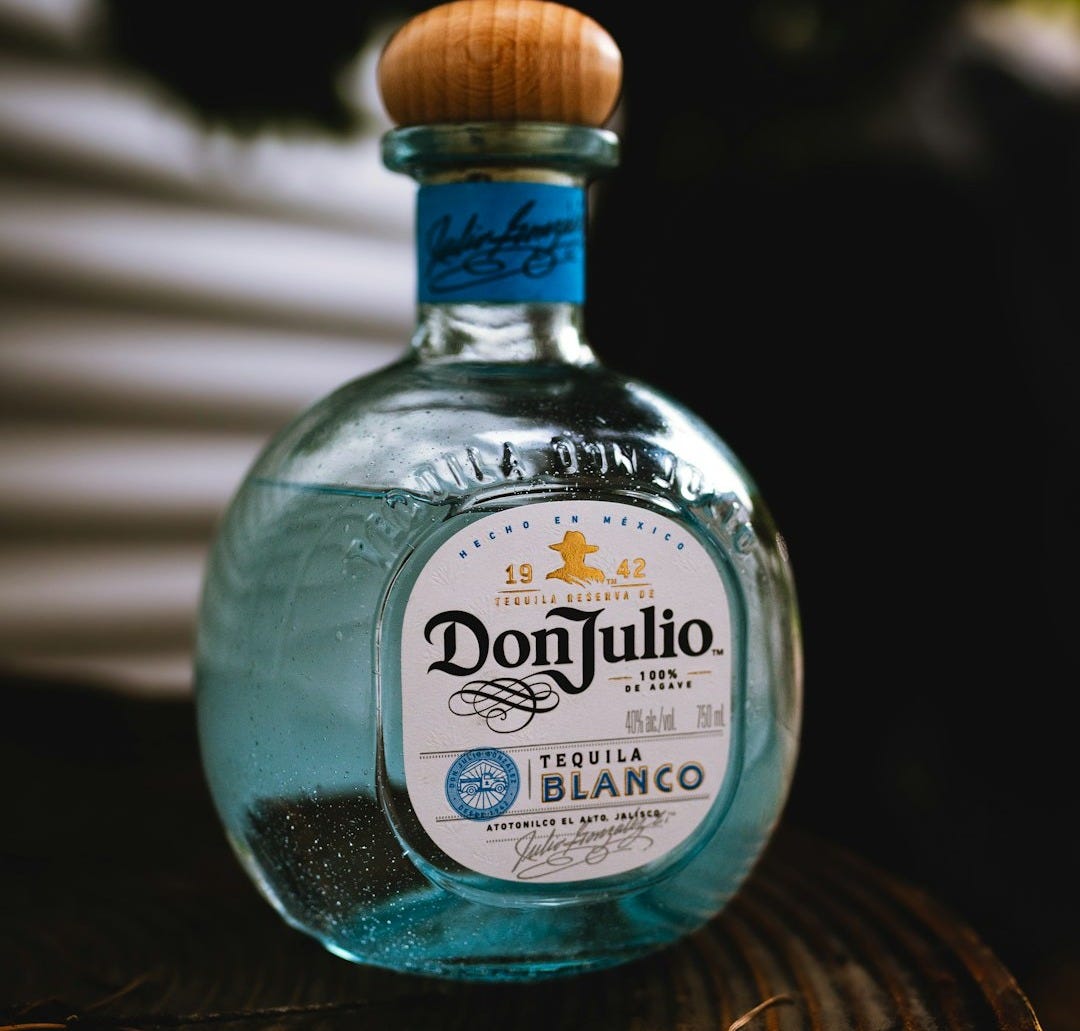Even doing your best to avoid the news, surely the word tariff has found its way into your ear holes.
I stumbled across a lot this week dealing with the beverage world and how tariffs affect and will affect the industry. It’s not unlike how the various tariffs will hit the rest of the US, impacting the price consumers pay at the stores and hurting companies both domestically and abroad in this interconnected global economy.
The first that popped up was how the US craft beer industry “could get crushed by tariffs” on CNN. President Donald Trump announced a 25% duty on imported steel and aluminum, you know the stuff cans are made out of.
Cans and the ability for consumers to take them home became incredibly important to the industry during the pandemic — but there was a massive shift from bottles to cans in the last 20 years in general. Brewers will see can prices increase with the prices of steel and aluminum expected to go up by as much as 20%, and likely pass those on to consumers.

That’s not great because breweries are already struggling, as the newsletter has touched on before — and in 2024, for the first time in two decades, more breweries closed than opened.
The US alcohol industry will suffer because of the tariffs, and as a result, so will the hospitality sector and individual consumers. Even without dealing with tariffs, the beverage industry beyond beer is already struggling, as this newsletter often touches.
And while Wine & Spirits Wholesalers of America Chairwoman Dina Opici said the industry was able to adjust and absorb the tariffs from the previous Trump Administration, the new plans are devastating.
“Any new tariffs on wine and spirits in today’s economic climate would be extremely disruptive…,” Opici said in a statement last month. “The entire industry—from suppliers to importers to distributors to retailers—is under immense pressure, with little room to absorb or distribute the cost of additional tariffs. Passing these costs onto consumers would only exacerbate the already fragile state of the wine market, leading to further deterioration.”
These tariffs come as tequila has been the lone growing bright spot for the alcohol industry. Tequila and mezcal sales grew 2.9% in 2024, driving the spirit sector’s 1.1% growth overall. (Vodka was flat; American whiskey was down 1.8%; premixed cocktails were up 16.5%.)

The Distilled Spirits Council of the United States said tariffs on tequila and Canadian whisky (not to mention the European imports) do not boost American jobs — they cannot be manufactured in the US. Then there are the added retaliatory tariffs put on American exports, like bourbon.
“Our industry has been weighed down by retaliatory tariffs as part of unrelated trade disputes since 2018, which crashed our exports harming thousands of distillers and their farmers across the United States,” a November statement read. “The US spirits sector continues to experience a slowdown. At the end of the day, tariffs on spirits products from our neighbors to the north and south are going to hurt US consumers and lead to job losses across the US hospitality industry just as these businesses continue their long recovery from the pandemic.”
Imports make up 30-35% of the American alcohol industry.
Back in December, the WSWA found Trump’s tariff plans could “disrupt the market, leading to significant losses in American jobs, tax revenue and overall economic output.”
According to John Dunham and Associates, a 10% import tax on wine and spirits would result in the loss of 12,000 jobs; a 20% tax on wine and spirits could result in a $2.9 billion loss in tax revenue.
In the Libertarian publication Reason, Dallas restaurant owner Gabe Sanchez said the originally proposed 25% tariff on Mexico could bump a $35 bottle of tequila or mezcal to $42 and make cocktails unreasonable. It could also make smaller producers with unique products less likely to ship to the US due to becoming less competitive price-wise with other spirits.

Reuters reported analysts expect companies like Diageo — which owns an enormous portfolio of beverages like Don Julio tequila — to raise prices by 10%. A consumer shift toward lower-priced beverages could cost Diageo upward of $600 million annually, according to the Reuters article. (Diageo also owns brands like Crown Royal and Guinness, which the newsletter has noted before was the fastest-growing import beer brand in the US last year.)
Those price hikes would come when drinkers are already drinking less, and there is a trend toward premiumization, according to multiple recently released trend reports. So, how does that all shake out for the industry?
A shift back toward lower-priced products? Or just a continued drop in drinking?
Reads of the week?
Building on the tariffs, the NY Times examines how Europe’s retaliatory tariffs on American whiskey (and other products, like motorcycles) affect that industry.
Inside Hook declared "We’re living in the golden age of wine bars." The publication also detailed how “American distillers are embracing the art of Italian Amaro.”
Amazing beverage writer Dave Infante dives into the Guinness boom mentioned above at VinePair.
WSJ has a fun quiz on what drinks contains more alcohol in an article questioning how much we’re really drinking.
What we’re drinking
This week, I made a fantastic dish that took probably 20 minutes: Spanish cod with a tomato and chorizo sauce. It's super simple and delicious.
Heat a little olive oil in a pan, then sauté sliced garlic and chorizo for a few minutes. Add a sprinkle of crushed chili and a can of tomatoes, and simmer for 10 minutes.
As that cooks, bake cod fillet rubbed with olive oil, salt, pepper and paprika for about 10 minutes.
Serve with green beans tossed in a little olive oil, salt and pepper and a little lemon juice.
I paired it with a recent selection from the Bistro Bella Vita wine club, a Spanish white: Zestos Blanco.
For an after-dinner drink, try a Cherry Amaretto & Whiskey Sour:
2-5 cherries (fresh or Luxardo-style)
2 ounces bourbon
1 ounce amaretto
.5 ounce lemon juice
Extra cherries
Method: Add cherries, whiskey, amaretto and lemon juice to a shaker. Muddle cherries, add ice and shake. Strain into a glass filled with ice. Top with extra cherries.





These tariffs deserve a round of booze
I dislike our government's talk of tariffs because they never seem to help anyone other than being a bargaining chip in future negotiations. Unfortunately, our newly elected President frequently uses the idea of tariffs and shakes markets unfairly reacting to the news.
I did like the story and the note about Guinness being the fastest-growing imported beer. If you have not tasted the fabulous Guinness Foreign Extra, which I have seen in 4-packs in Florida, that is the one to write home to your family about. The huge chocolate, coffee, and barley/nuts taste in a 7.5 abv flavor is an experience in itself. A four-pack should be fine for 2 over a hearty meal deserving of the honor.